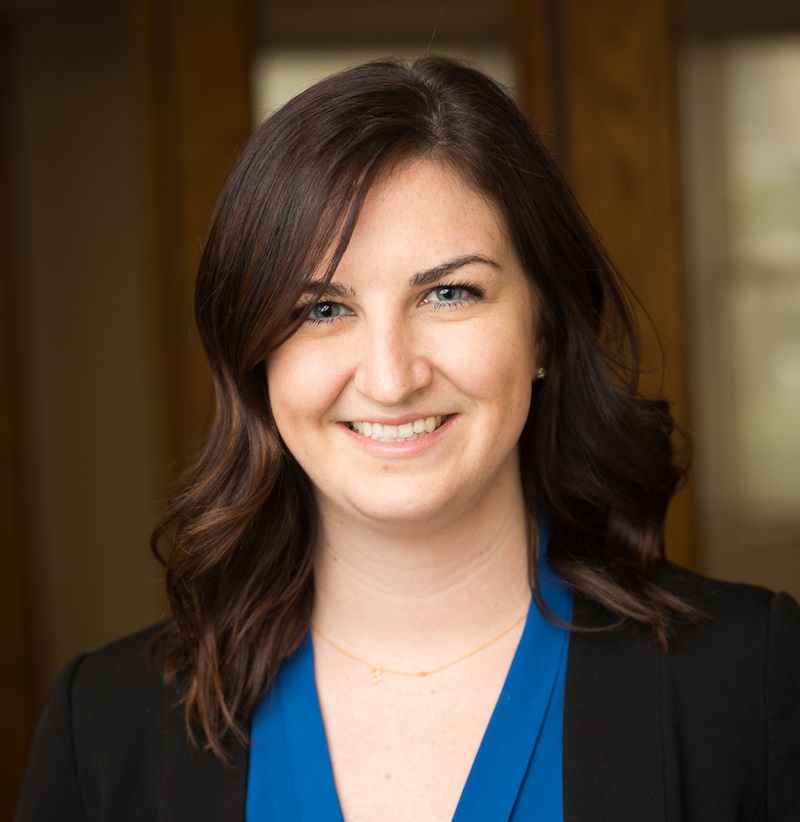
In November 2020, DePaul law student Mary Hannon ('21) published
“The Patent Bar Gender Gap: Expanding the Eligibility Requirements to Foster Inclusion and Innovation in the U.S. Patent System" in the Indiana University Maurer School of Law's IP Theory online journal. In the article, she examines the lack of diversity in patent bar membership due to the “institutionally biased and outdated set of scientific and technical requirements" of the United States Patent & Trademark Office (USPTO). Although her focus is on gender and minority exclusion, her analysis highlights numerous issues that prevent others from entering the patent bar and provides recommendations for remedying this situation.
A “Triple Demon," Mary earned her undergraduate and graduate degrees from DePaul University in chemistry and started out as a research and development chemist. She later joined law firm Marshall, Gerstein & Borun LLP as a technical specialist and became a member of the firm's Diversity, Equity, and Inclusion (DEI) committee. She became a patent agent after passing the patent bar exam in 2018, and that fall, enrolled at DePaul Law while still serving as a full-time patent agent.
Inspired by her own experiences and those of her colleagues, the article took Hannon nine months to complete, having started as part of Professor Joshua Sarnoff's Advanced Intellectual Property Writing Seminar. Professor Sarnoff and CIPLIT Executive Director Ellen Gutiontov encouraged her to post it on SSRN, where it received attention and eventually publication in IP Theory. Professor Sarnoff says, “I was delighted to be able to encourage and supervise Mary, and it shows what dedicated and talented students can achieve."
Hannon showcases the various problems with patent bar eligibility. She was previously aware of some, such as the illogically stringent qualifications for Category A: Automatic Eligibility (e.g., you can be automatically eligible if you have a degree in “Biochemistry" or “Biology" but not in “Biological Sciences" or “Biomechanical Engineering"). However, she was surprised that the “bigger issue is how internally inconsistent the standards are. Some of the Category A degrees don't pass the Category B [Sufficient Scientific Education] criteria." While these issues affect the patent bar candidate population as a whole, they disproportionally limit the inclusion of women, a group that has been historically underrepresented in STEM fields.
Most of the feedback has been resoundingly positive. Members of the Senate Subcommittee on Intellectual Property reached out to her about the article, and a
letter reflecting her concerns has received bipartisan support. She also has received speaking engagements from the American Intellectual Property Law Association and the Licensing Executive Society International's Women in Licensing Alliance.